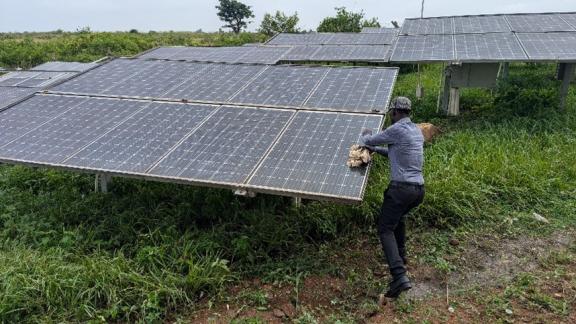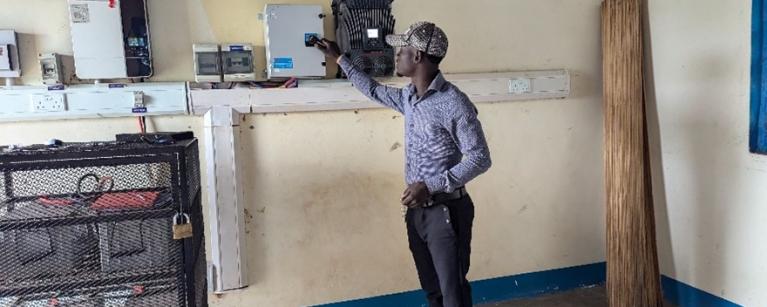In the heart of Uganda’s refugee settlements, a critical transition in the water sector is underway. Once handled by humanitarian agencies, the management of water supply systems is now shifting to national and regional utilities.
This change is part of Uganda’s commitment to the Comprehensive Refugee Response Framework (CRRF), aimed at improving the long-term sustainability of essential services.
Behind this transformation are organizations like GIZ, Oxfam, Water Mission Uganda, and World Vision, all working with the Nothern Uganda Water and Sanitation Umbrella to support and ensure that clean, reliable water continues to flow for the thousands of refugees in these settlements.
For 31-year-old Shakir Shamadu Shady, a resident of Batulu Cell in Yumbe District, this shift has been timely for his personal growth. Shakir has worked as a water pump operator since 2018 when Water Mission Uganda first recruited him to manage the World Vision Water System.
Back then, his training was minimal, focusing on basic system operations. He learned most of the job’s demands through hands-on experience and troubleshooting problems at the water pump station that serves Zone 1 of his settlement.
“I was always worried about the major technicalities,” Shakir recalls. “Learning how to pump water and fix minor issues was good, but what if something bigger went wrong? The system supplies water to 10 out of 14 villages in Zone 1. If it failed, many people would be without water”
The stakes are high for Shakir and his community, where water is not just a convenience but a lifeline. Like many areas in Uganda’s refugee settlements, Zone 1’s water supply is solar-powered, but the system is affected when the sun does not come out on rainy days.
A backup generator installed by GIZ was intended to keep the water flowing during cloudy weather. Still, the generator can sometimes be out of order due to mechanical problems, leaving Shakir and other operators with the challenge of keeping the system running and the communities frustrated.
Despite these challenges, Shakir’s skills and confidence have grown significantly, thanks to Oxfam’s technical training.

With funding from Oxfam Hong Kong, Oxfam in Uganda has been working to support the transition of water systems to national utilities. Supporting the Northern Uganda Water and Sanitation Umbrella, Oxfam is delivering specialized training to water supply managers and local water pump operators like Shakir. This five-day session Shakir received covered everything from technical operations and regulations of utility management, maintenance of pipes, electro-mechanical equipment water quality monitoring to customer care and leadership management.
““I was privileged to attend the training, where we had practical sessions at the Okokoro Water System,” Shakir says with pride. “For the first time, I learned how to calculate the amount of water pumped each day. Now, even when I take leave, I can calculate the units used by the community in my absence.””
This newfound knowledge has transformed Shakir’s work. He now understands the full scope of the water system, from mixing chlorine for water purification to troubleshooting larger technical issues. His experience, combined with a recent three-month training in plumbing and electronics, has sparked a new dream for Shakir to become a water engineer.
He dreams of furthering his education in water engineering, a path that would secure a better future for himself and the thousands of people who rely on his expertise to access clean, safe water.
“I hope Oxfam continues with this project next year,” Shakir says. “There’s still so much to learn and improve. But I know that with the right tools and training, we can keep the water flowing.”
As Uganda continues its transition to national and regional utilities managing water systems in refugee settlements, individuals like Shakir stand at the forefront, ensuring that these life-sustaining systems remain operational. His story is one of hope, and the importance of investing in local expertise.
